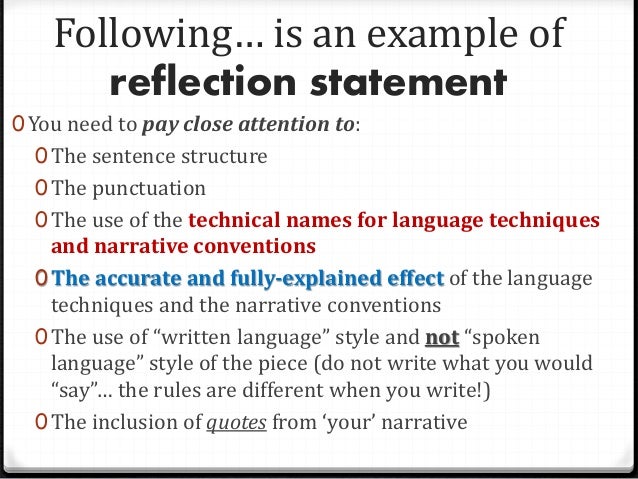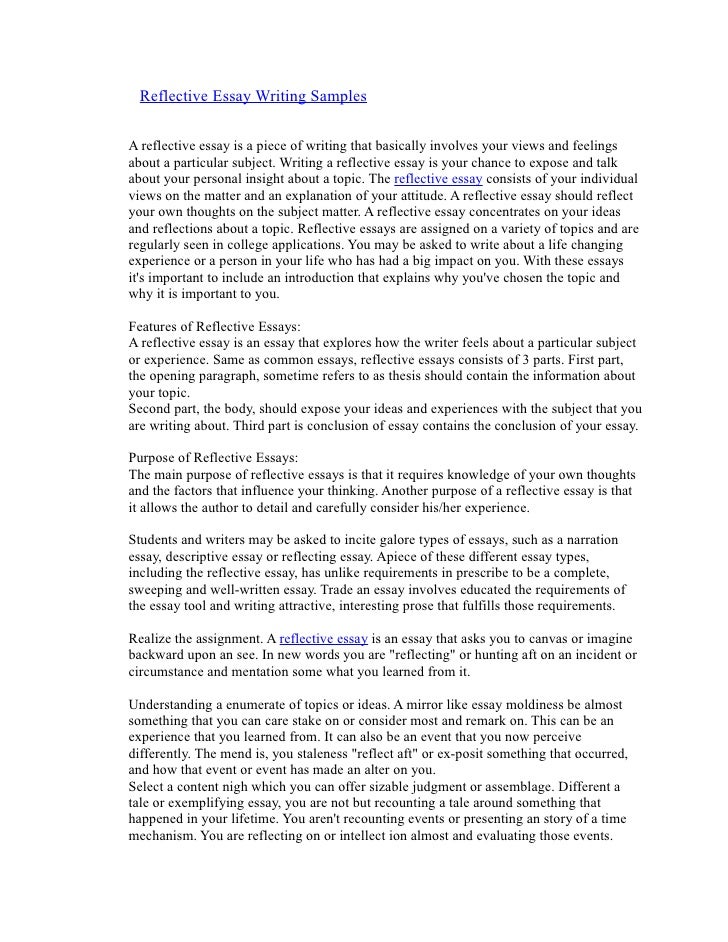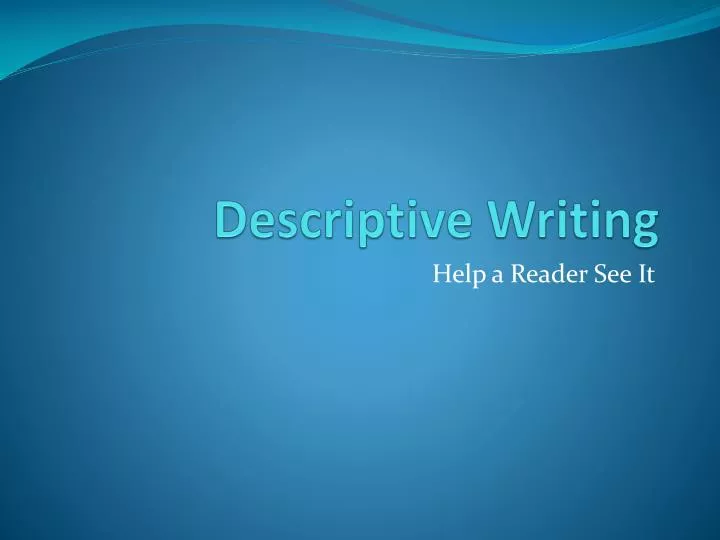
2/1/ · There are two approaches to writing a reflection paper – a traditional and an original (though a risky one): 1) Express the main idea in a thesis statement, develop it in body paragraphs by providing supportive arguments, and conclude facts by supporting the thesis statement once more. 2) Start a conversation on topic and hint on a conclusion Reflection is: a form of personal response to experiences, situations, events or new information. a 'processing' phase where thinking and learning take place. There is neither a right nor a wrong way of reflective thinking, there are just questions to explore. Figure 1 shows that the reflective thinking process starts with you. Before you can begin to assess the words and ideas of others, you need to pause and 1/20/ · Organizing a Reflection Paper 1. Keep it short and sweet. A typical reflection paper is between and words long. Verify whether or not your 2. Introduce your expectations. The introduction of your paper is where you should identify any expectations you had for 3. 87%(32)
How to Write a Reflection Paper: Guide with Example Paper | EssayPro
A great deal of your time at university will be spent thinking; thinking about what people have said, what you have read, what you yourself are thinking and how your thinking has changed. It is generally believed that the thinking process involves two aspects: reflective thinking and critical thinking. They are not separate processes; rather, they are closely connected Brookfield Figure 1: The Thinking Process adapted from MezirowSchonBrookfield There is neither a right nor a wrong way of reflective thinking, there are just questions to explore.
Figure 1 shows that the reflective thinking process starts with you. Before you can begin to assess the words and ideas of others, you need to pause and identify and examine your own thoughts.
Doing this involves revisiting your prior experience and knowledge of the topic you are exploring. It also involves considering how and why you think the way you do. The examination of your beliefs, values, attitudes and assumptions forms the foundation of your understanding, how to write a written reflection.
Reflective thinking demands that you recognise that you bring valuable knowledge to every how to write a written reflection. It helps you therefore to recognise and clarify the important connections between what you already know and what you are learning.
It is a way of helping you to become an active, aware and how to write a written reflection learner. Skip to main content.
myUNSW Moodle Library Handbook Email. Current Students. Sign on Search Menu. Student Home Getting Started Accept your offer How to enrol Student ID card Set up your IT Orientation Week.
Exams Results. The Nucleus: Student Hub. Psychology Health Service. Accommodation Health services Sport and gym. Moodle myUNSW Email Microsoft Office myLibrary Careers portal Change your password Need help?
Student Support Academic Skills Writing skills Essay and assignment writing Print to PDF. Figure 1: The Thinking Process adapted from MezirowSchonBrookfield Reflective thinking Reflection is: a form of personal response to experiences, how to write a written reflection, events or new information.
a 'processing' phase where thinking and learning take place. What is reflective writing? Reflective writing is: documenting your response to experiences, opinions, events or new information communicating your response to thoughts and feelings a way of exploring your learning an opportunity to gain self-knowledge a way to achieve clarity and better understanding of what you are learning a chance to develop and reinforce writing skills a way of making meaning out of what you study Reflective writing is not: just conveying information, instruction or argument pure description, though there may be descriptive elements straightforward decision or judgement, e, how to write a written reflection.
about whether something is right or wrong, good or bad simple problem-solving a summary of course notes a standard university essay. See next: How do I write reflectively? Referencing, writing and academic skills support. For development of skills needed to succeed at uni. Academic Skills Referencing. Essay and assignment writing. Essay and assignment planning. Answering assignment questions. How do I write reflectively? Examples of reflective writing. Engineering and science.
Other links and resources. Reading and note-taking. Contacts and appointments. Back to top. Website Feedback Contacts Sitemap A-Z Guide.
UNSW Sydney NSW Australia Authorised by Deputy Vice-Chancellor Academic UNSW CRICOS Provider Code: G TEQSA Provider ID: PRV ABN: 57 Page last updated: Monday 23 December
Writing a reflection
, time: 5:10Written reflections | The University of Edinburgh

9 rows · 3/20/ · If you are writing a longer reflection statement of more than words, you will need to write Reflection is a useful process even if you have not been set a specific reflective assignment. It helps you to make sense of and learn from your experiences. Many degrees involve assessed reflective writing. This is to allow you to demonstrate that you can think critically about your own skills or practice, in order to improve and blogger.com Size: KB Reflection is: a form of personal response to experiences, situations, events or new information. a 'processing' phase where thinking and learning take place. There is neither a right nor a wrong way of reflective thinking, there are just questions to explore. Figure 1 shows that the reflective thinking process starts with you. Before you can begin to assess the words and ideas of others, you need to pause and

No comments:
Post a Comment